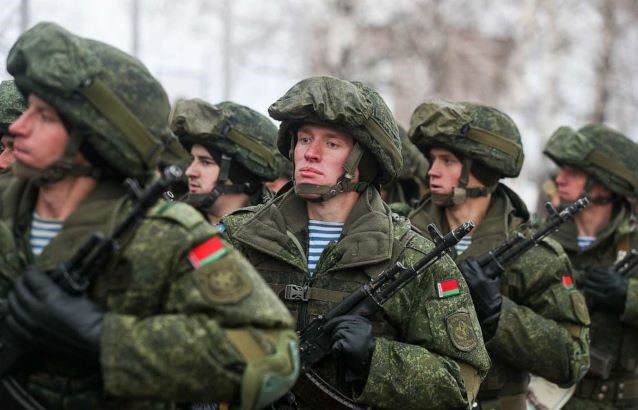Colombo, February 24:
In a short note on the Ukraine crisis and its impact on Bangladesh, the Bangladesh Institute of Peace and Security Studies (BIPSS) has highlighted what it could mean for small countries living in the neighborhood or the shadow of a regional or global power.
The BIPSS points out how the Ukraine imbroglio could encourage hegemonic tendencies among global and regional powers, adversely affecting their smaller or weaker neighbors.
“Questions will arise on how security of small States can be maintained. Bangladesh will be one of the countries at the forefront to face such concerns,” the note points out. Russian President Vladimir Putin has gone to the extent of claiming sovereignty or suzerainty over Ukraine and is poised to take it over forcibly.
Thus, Big powers or even regional powers could draw redlines around themselves and then declare them as marking “no-go zones” for non-regional powers, implying that that any intrusion by outside powers will be seen as a hostile act meriting a muscular response.
Russia had drawn a red line covering the former Soviet States on its Western borders and has seen any encroachment by the US or NATO as a threat to its security. Independent Ukraine’s bid to join NATO and the American camp was viewed by Russia as an alarming development. As Putin put it bluntly, America’s aim is to go beyond Ukraine and destroy Russia itself. Putin has now claimed the whole of Ukraine, thus effectively derecognizing its separation after the collapse of the USSR. Other powers feeling similarly threatened, could act likewise, the BIPSS hints.
The BIPSS note highlights the fact that powers could “instrumentalize or weaponize national minorities” as the Russians have done in the case of the Ukrainian minorities in the breakaway Donetsk and Luhansk territories. In this process, Russia has recognized Donetsk and Luhansk as independent states and has asked the UN to recognize their independence. This is a major blow to Ukraine’s territorial integrity and sovereignty.
Further, the Ukraine crisis shows the contours of “aggressive grey zone pre-invasion warfare”, the BIPSS note says. Aggressive posturing by both Russia and the US have already destabilized Ukraine. Ukrainian leaders are pleading for restraint and for a negotiated solution. “Aggressive grey zone pre-invasion warfare”, could be replicated by other powers, the BIPSS warns.
The other important dimension is the distinct possibility of nations being compelled to choose between the West and Russia. Bangladesh may be asked to choose between India-US combine on the one hand, and the Russia-China alliance on the other. This could lead to much strain in Bangladesh’s relations with these countries specifically, and in its foreign policy in general, the note says.
Economic Impact
The BIPSS note devotes considerable space to the economic impact of the Ukraine crisis on Bangladesh. It predicts a sharp rise in the crude oil price (it was US$ 100 a barrel on February 22) and says a price rise will gravely impact Bangladesh which imports all its crude and is an import dependent economy also. Bangladesh nuclear energy project at Roopoor will be in difficulty if US sanctions affect the Russian Rosatom State Energy Corporation. A complete disruption of the supply chain will severely affect the RMG sector, the backbone of Bangladeshi exports. The RNG sector has to face the challenge of keeping to time schedules.
Bangladesh is dependent on Russia for defense supplies as well as its energy needs. With sanctions against Russia, doing business with that country will be very difficult. Therefore, Bangladesh may be forced to look at alternatives. International currency fluctuations which follow such crises, will also affect Bangladesh, the BIPSS warns.
END





